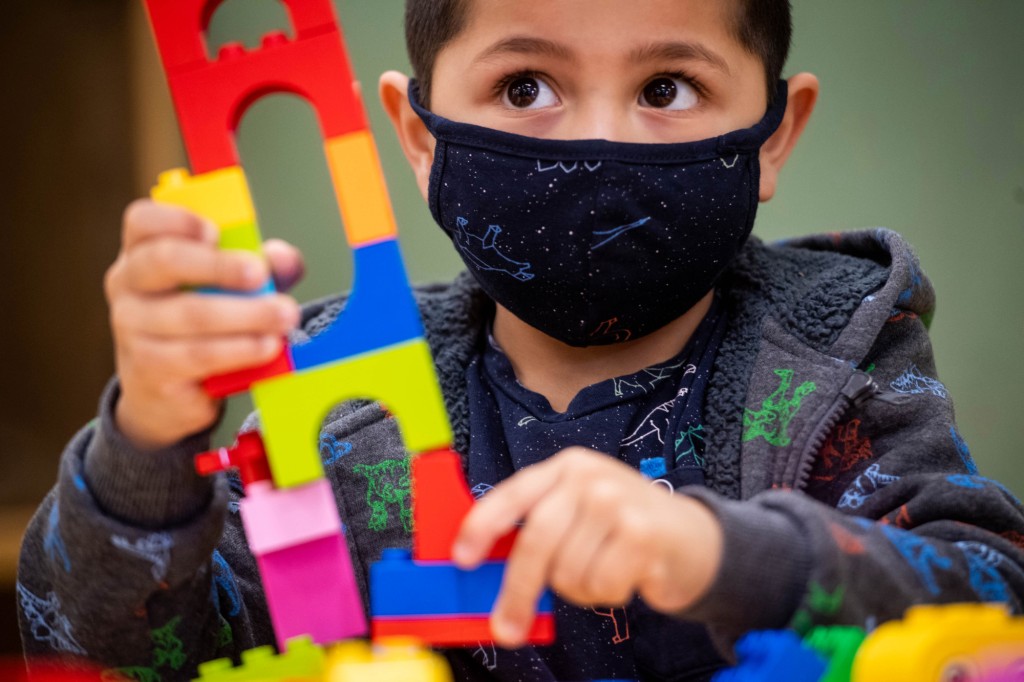OAKLAND — An Alameda County judge has ruled that 2020’s Measure C — a half-cent sales tax measure that would provide $150 million annually for pediatric health care, early education programs and affordable child care — can go into effect, following two years of legal debate.
However, opponents of the Alameda County measure say they intend to appeal the decision, and an appeal could still keep the tax money from being spent. The tax has been collected since last July, but the funds are being held in escrow pending the outcome of the legal challenge, according to county reports.
“As a society, we have failed to fully fund early care and education for decades to the detriment of providers, the workforce, and families,” Kristin Spanos, chief executive officer of First 5 Alameda County said in a statement Thursday.
“The pandemic has made the challenges even more acute and worsened inequities that have harmed low-income and families of color for too long. These public resources are needed now more than ever to support and strengthen our county’s early childhood system, particularly with an equity lens,” Spanos said.
In a ruling issued Wednesday, Judge Jeffrey Brand rejected the arguments of the Alameda County Taxpayers Association, which had challenged the validity of the measure.
The measure passed in the March 2020 primary election with about 64.35% of the vote, according to the county registrar.
Although the measure was headed up by current Alameda County Supervisor Dave Brown — who at the time was the chief of staff for the late Wilma Chan — it was considered a citizens initiative, only put on the ballot after enough signatures were gathered in support of it.
Alameda County officials argued that because it was a citizens initiative, it only needed a simple majority vote to pass, which it far surpassed.
But the taxpayers association, represented by attorney Jason Bezis, sued the county, arguing that the measure should have been required to gain a two-thirds majority in order to pass, as it is effectively a ballot measure propped up by the county government. State law requires tax measures proposed by governments to meet that threshold.
“The principal officer of the campaign was Dave Brown, Wilma Chan’s chief of staff. So is this really a citizens initiative or is this county-orchestrated initiative?” Bezis said Thursday in an interview.
Bezis said the county had tried to pass a similar early education and childcare measure in 2018, called Measure A, but it failed without two-thirds support.
Bezis contends the county, in order to pass Measure C, “struck a deal with Children’s Hospital Oakland” to put up over $1 million to back the signature-gathering initiative and the ballot measure, with the understanding that the hospital would get 20% of the proceeds from the measure for pediatric healthcare when it passed.
“Because the county was so deeply involved with this so-called voter initiative, it should be subjected to the two-third threshold,” Bezis said.
Bezis said his clients will appeal the decision.
“This means that as long as this appeal is pending, Measure C funds are not going to be released to the programs,” he said.
In part because of Measure C, Alameda County now has the highest base tax rate of any county in the state, of 10.25%, Bezis said. Many cities in the county have even higher rates up to 10.75%.
“The goal of this case is to invalidate (the measure) and refund the money that has been collected,” Bezis said.
Supervisor Brown did not immediately respond to a request for comment late Thursday, nor did attorneys for the county.










